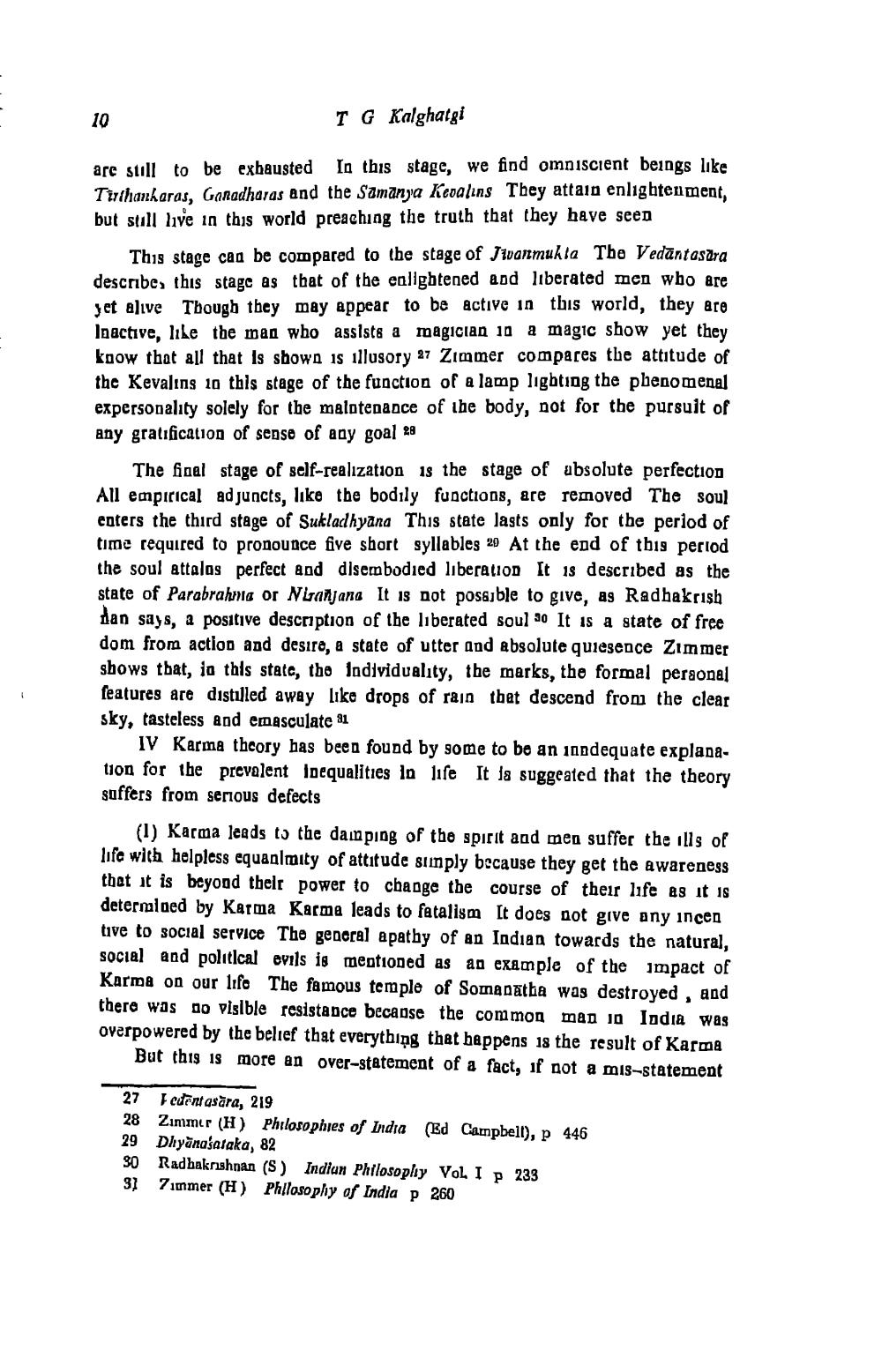________________
10
TG Kalghatgi
are still to be exhausted In this stage, we find omniscient beings like Tirthankaras, Ganadharas and the Samanya kedalins They attain enlightenment, but still live in this world preaching the truth that they have seen
This stage can be compared to the stage of Iwanmukla The Vedāntasara describe this stage as that of the enlightened and liberated men who are yet alive Though they may appear to be active in this world, they are Inactive, like the man who assists a magician 10 a magic show yet they kaow that all that is shown is illusory 27 Zimmer compares the attitude of the Kevalins in this stage of the function of a lamp lighting the phenomenal expersonality solely for the malotenance of the body, not for the pursuit of any gratification of sense of any goal 28
The final stage of self-realization is the stage of absolute perfection All empirical adjuncts, like the bodily functions, are removed The soul enters the third stage of Sukladhyana This state lasts only for the period of time required to pronounce five short syllables 29 At the end of this period the soul attalas perfect and disembodied liberation It is described as the state of Parabrahrria or Nlanjang It is not possible to give, as Radhakrish dan says, a positive description of the liberated soul 30 It is a state of free dom from action and desire, a state of utter and absolute quiesence Zimmer shows that, in this state, the ladividuality, the marks, the formal personal features are distilled away like drops of rain that descend from the clear sky, tasteless and emasculate 31
IV Karma theory has been found by some to be an adequate explanation for the prevalent inequalities in life It ja suggeated that the theory suffers from serious defects
(1) Karma leads to the dainping of the spirit and men suffer the ills of life with helpless equanlmity of attitude slinply because they get the awareness that it is beyond their power to change the course of their life as it is determined by Karma Karma leads to fatalism It does not give any incen tive to social service The general apathy of an Indian towards the natural, social and political evils is mentioned as an example of the impact of Karma on our life The famous temple of Somanatha was destroyed, and there was no visible resistance because the common man in India was overpowered by the belief that everything that happens 18 the result of Karma
But this is more an over-statement of a fact, if not a mis-statement
27 28 29 80 3)
Feueintasära, 219 Zimmer (H) Philosophies of India (Ed Campbell), p 446 Dhyānasasaka, 82 Radhakrishnan (S) Indiun Philosophy VoL I p 233 Zimmer (H) Philosophy of India p 260




